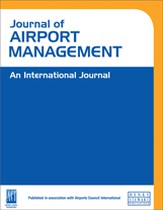Towards net zero airports: Electrification of ground services
Abstract
This paper investigates the economic and environmental impacts of transitioning ground service equipment (GSE) from diesel-powered to electric-powered alternatives. By modelling aircraft turnaround processes for three different aircraft types, the driving and operating times of GSE are analysed. This analysis forms the basis for comparing the variable and total cost of diesel versus electric GSE, demonstrating that electric GSE offers significant cost advantages over its diesel counterparts, including reductions of 70 per cent in variable costs and approximately 35 per cent in total costs. Additionally, the study quantifies the environmental benefits in the context of the European Union (EU) Emission Trading System, noting that diesel GSE incurs approximately 4 per cent higher costs due to emissions. To further enhance both the economic and environmental outcomes, two improvement measures are proposed: adopting local green energy generation and implementing electric GSE designed for full-day operation. Ultimately, the paper advocates for a comprehensive approach that transforms the airport‘s electric system into a local grid with integrated local energy generation, storage and smart charging solutions, paving the way for substantial progress toward net zero airports.
The full article is available to subscribers to the journal.
Author's Biography
Christoph Klingenberg Dr Christoph Klingenberg, PhD is Professor of Airport Management at Worms University of Applied Sciences, Germany. He joined the faculty after senior positions at McKinsey & Company, Lufthansa AG and Deutsche Bahn AG. He taught as lecturer at Darmstadt University and as professor at IU International University of Applied Sciences in Bad Honnef. His main areas of interest are airport capacity expansion, demand management through slot assignment, throughput enhancement using depeaking and digitisation of the aviation value chain.
Lena Trepte holds a Bachelor’s degree in aviation management from Worms University of Applied Sciences, Germany. During her studies she gained valuable experience in ground handling through multiple internships and working student positions. Building on this, she currently works at WISAG Aviation as an Executive Assistant.
